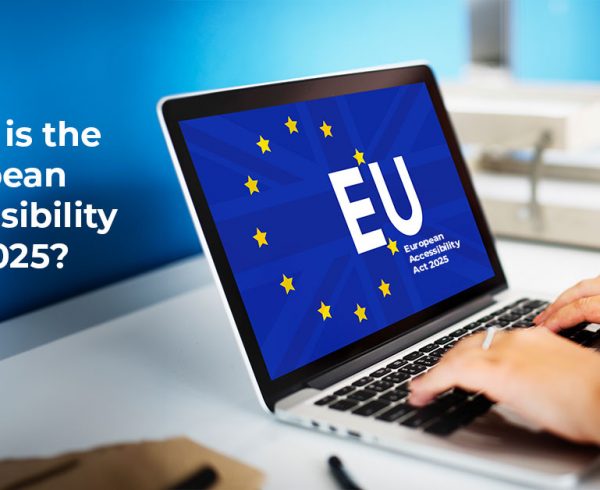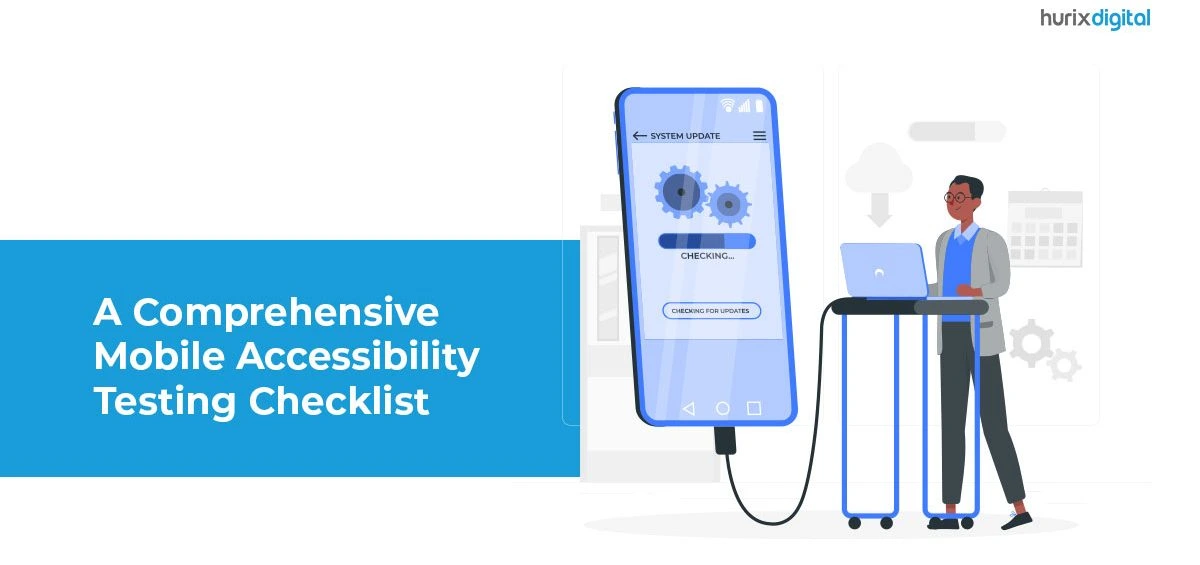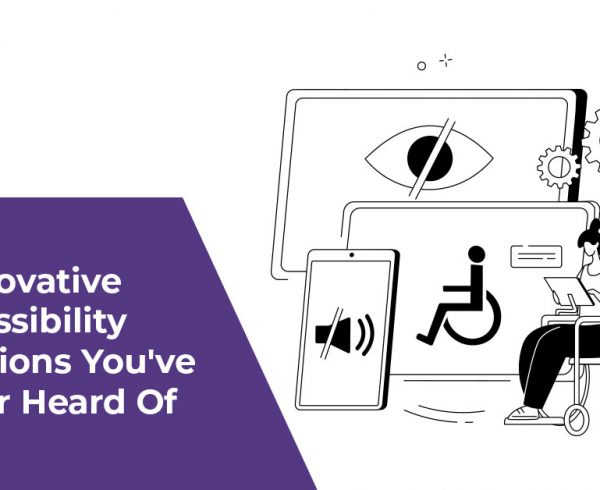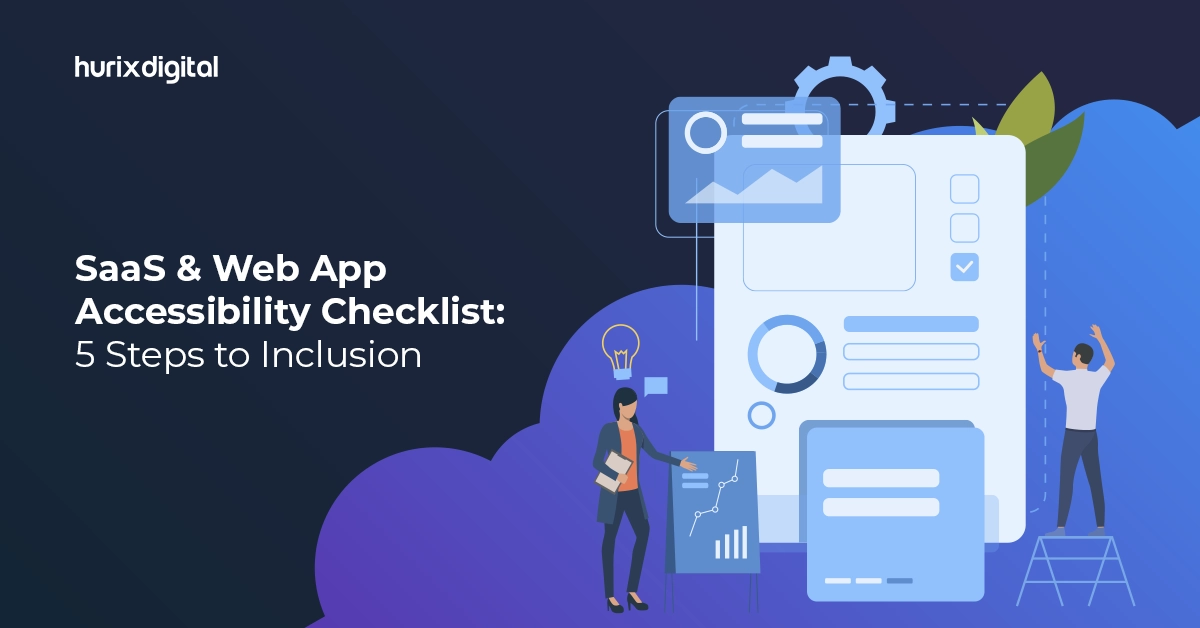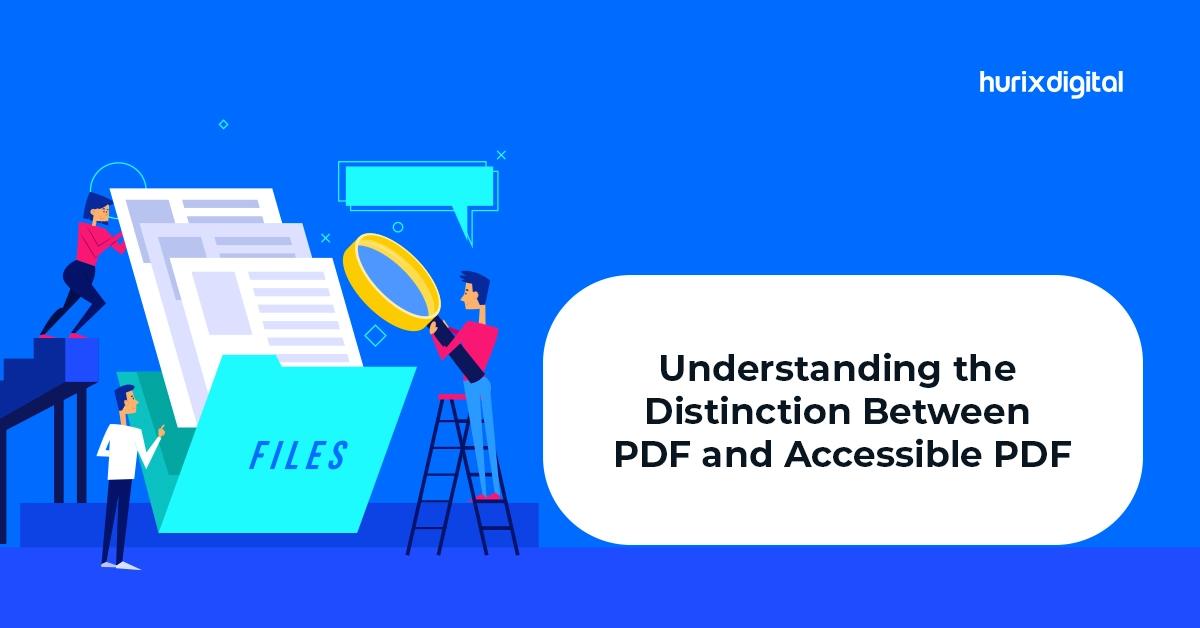“The power of the Web is in its universality. Access by everyone regardless of disability is an essential aspect.”
– Tim Berners-Lee, the inventor of the World Wide Web
The world and the virtual world are better when they are inclusive. Today, we cannot afford to ignore the importance of accessibility.
Especially at a time when 1.3 billion people live with significant disabilities globally, which is about 16% of the world’s population. Most countries have legal frameworks for making products and services accessible.
Europe has the European Accessibility Act 2025 (EAA) to serve that purpose, while Web Content Accessibility Guidelines (WCAG) are international guidelines to enhance accessibility for organizations on the Internet. We’ll learn about both these frameworks in this article and highlight their importance.
Table of Contents:
- European Accessibility Act 2025 and WCAG: What, Why, Who and When
- The European Accessibility Act 2025 and WCAG: The Common Grounds and Differences
- European Accessibility Act 2025 and WCAG: Embrace the Change
European Accessibility Act 2025 and WCAG: What, Why, Who, and When
Organizations must prioritize accessibility when developing their digital solutions. This should be a fundamental consideration to ensure that the needs of all users are met.
The European Accessibility Act 2023 and WCAG help organizations achieve that with added benefits.
1. What: Understanding the Laws
In the 2000s, the EU Web Accessibility Directive started to take shape. In 2016, the Web Accessibility Directive was passed. These two, combined with the UN Convention on the Rights of Persons with Disabilities (UNCRPD), led to the EAA.
The EAA is legislation that synchronizes accessibility rules for all member states for equal participation of the specially-abled and elderly. It reduces marginalization and gives specific guidelines to make content for products and services accessible and inclusive.
The WCAG, which came into effect in 2008, is a shared standard for web accessibility guidelines created by the Accessibility Guidelines Working Group, a part of the World Wide Web Consortium. It applies internationally.
2. Why: The Need
There are various reasons why EAA and WCAG are the need of the second:
- The EU Web Accessibility Directive catered only to web and mobile applications. Other digital products involved, like ATMs, banking services, ticketing platforms, tools used for professional services, etc., were excluded, which now fall under the purview of the EAA. This further enhances European accessibility standards.
- About 87 million people in the EU battle disabilities, with only half of them employed and only 29.4% being able to get a tertiary degree. EAA was a response to take European accessibility to the next level.
- WCAG bridged the need for uniform, international, informative guidelines that could be used for web accessibility and were user-friendly. For organizations or individuals that wanted a starting point to enhance ease of use for people with disabilities, WCAG saved the day.
3. Who: For Whom Are They Applicable
EAA – The European Accessibility Act 2025 is applicable for:
- All state, regional, and local authorities
- All bodies governed by public law and financed by way of it
- Associations formed by the above or those that are created for general interest
- Manufacturers and providers who sell services and products across the EU include those in the fields of:
- eCommerce
- eBooks
- Banking
- Electronic communication devices like smartphones
- Televisions and broadcasts
- Service terminals related to transport
- Telephone and related services
- Computer and operating systems, etc.
NGOs, schools, public service broadcasters, micro-businesses, etc. are exempt.
WCAG – It applies to federal agencies and contracts, but the answer is vague for private businesses. While their websites can be compliant, whether to bring digital products under its purview is at the organization’s discretion.
4. When: Effective-From Dates
The European Accessibility Act 2025 was proposed in 2011, passed in 2016, and enacted in 2019. EU member states can make their laws and are mandated to implement them by June 28, 2025. The reporting and review must be completed by June 28, 2030, and every five years after that.
WCAG 2.0 was recommended in 2008, 2.1 extended its scope in 2018, and 2.2 was proposed in 2023.
Also Read: Empowering Digital Accessibility: A European Perspective on Website Inclusiveness
The European Accessibility Act 2025 and WCAG: The Common Grounds and Differences
1. The Common Grounds
- Both WCAG and the European Accessibility Act 2025 are accessibility frameworks that aim at making digital products and services inclusive.
- The European Union requires all member states to abide by WCAG 2.1 recommendations for EAA accessibility.
- They are both formed on the same four principles that say that the products and services must be:
- Perceivable
- Operatable
- Understandable
- Robust
2. The Differences
- The EU Accessibility Act 2025 is a law, and WCAG is a recommendation. This means that EAA can be enforced, and WCAG can only be suggested.
- The EU Accessibility Act is formed by the government and applicable only to the European Union, whereas WCAG is an international standard created by a group of individuals and organizations.
- WCAG focuses mainly on accessibility for websites, whereas EAA extends to all digital products.
- WCAG does not contain specific directives and rules; EAA does.
If you want to learn more, you can read the complete text of WCAG 2.2 here and the EAA here.
Also Read: What is the European Accessibility Act 2025?
European Accessibility Act 2025 and WCAG: Embrace the Change
Here are the five key reasons to make your organization compliant with EEA and WCAG:
- They allow you to connect with a broader customer base and increase market opportunities.
- You can increase the probability of sales through eCommerce by decreasing the bounce rate for European Accessibility Act websites. About 69% of specially-abled people exit a website or app if it is not accessible.
- Future-proofing your organization by being prepared for accessible websites as clients begin to demand those.
- Accessible products are beyond inclusive and allow for the creation of better products and services. They help enhance SEO, bounce rate, and digital quality.
- You can meet website accessibility compliance standards and avoid lawsuits.
To make your organization accessibility-compliant and inclusive, contact web accessibility solution experts at Hurix Digital. We can help you educate your staff on accessibility practices through eLearning, plan and upgrade your digital infrastructure, and consistently implement updates according to amendments to accessibility laws. Get in touch with our specialists today!



